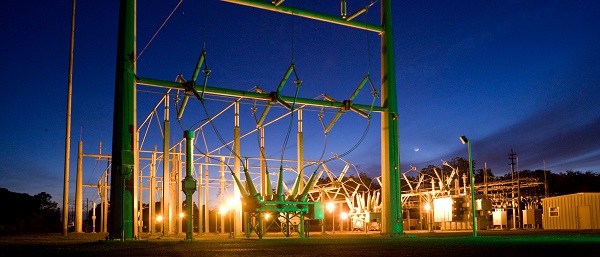International
Trump promises to ban males from competing in women’s sports if re-elected

From LifeSiteNews
By Stephen Kokx
During a town hall with female voters, Donald Trump promised to ban men from competing in women’s sports, citing concerns over physical advantages and safety risks, if he’s re-elected next month.
Donald Trump told Fox News anchor Harris Faulkner this week that he will ensure that gender confused men are not allowed to play sports against women athletes.
“You just ban it,” he said. “It’s a man playing in the (women’s) game.”
"You just ban it. The president bans it. You just don't let it happen."
Former President Trump gave a quick and simple solution for how he would solve the issue of biological men in women's sports during a '@FaulknerFocus' town hall with female voters. | @HARRISFAULKNER pic.twitter.com/CqalYFgCER
— Fox News (@FoxNews) October 16, 2024
Trump made the remarks during a town hall Wednesday night that featured an exclusively female audience. Faulkner had asked them to raise their hands if they were “worried about biological men and boys competing against women and girls in sports,” at which the entire room lifted their arms in agreement.
Male competitors playing against women’s teams has become a particularly dangerous fad in recent years.
As reported by LifeSiteNews in February, a girls basketball squad in Massachusetts forfeited a game at halftime because a gender-confused male player on the opposing team had injured three of its players, causing the remaining teammates to fear for their safety.
Just this month the University of Nevada women’s volleyball team forfeited a match against San Jose State instead of taking the court because a male – whose spikes reach an estimated 80 miles per hour – is on their roster.
In 2022, a female high school volleyballer in North Carolina suffered a concussion after a “transgender” player from the other team hit her on the head with a ball traveling roughly 70 miles per hour.
Trump’s promise to ban males from competing in women’s sports via executive action comes as his campaign has issued several attack ads exposing Kamala Harris’ embrace of it.
“Kamala even supports letting biological men compete against our girls in their sports!” the ad recalls.
The ad also shines light on her support for sex change surgeries for inmates and incarcerated illegal aliens.
Trump further told Faulkner that he is worried about the “physical” advantage men have over women.
“Look at what’s happened in swimming. Look at the records that are being broken,” he said, alluding to swimmer William “Lia” Thomas’ victories against female competitors.
Although Trump himself supports homosexual “marriage” and is endorsed by the pro-LGBT Log Cabin Republicans, he has continually promised to keep gender confused athletes out of women’s sports.
Meanwhile, the former president drew criticism from social conservatives this week when he told John Micklethwait, editor-in-chief of Bloomberg News, that Republicans “don’t want transgender operations [for children] without parental consent.’’
Trump had previously said that he would “stop” all such surgeries for minors without any qualification or exception regarding parental approval.
International
Daughter convinces healthy father to die in double assisted suicide with mother

From LifeSiteNews
By Cassy Cooke
After her parents both became seriously ill and her mother wanted to undergo assisted suicide, a Washington woman convinced her father to die also.
Key takeaways
- Corinne Gregory Sharpe spoke to PEOPLE about her experience convincing her parents to undergo assisted suicide together.
- After her mother was diagnosed with aortic stenosis in her 90s, she lived for a few more years before her health began to decline. At that point, she said she wanted to die by assisted suicide.
- Her father did not have a health condition outside of having previously had a stroke; however, he was nervous to live without his wife. Sharpe convinced him of a “solution” – to kill himself alongside her mother.
- Couple assisted suicide has become romanticized by the media.
The details
Corinne Gregory Sharpe spoke with PEOPLE about her efforts to convince her father to undergo assisted suicide alongside her mother. She said her family had always been close, so when her mother became ill, her father was nervous to live without her.
Sharpe’s mother was first diagnosed with aortic stenosis in 2018 at the age of 92 and given less than two years to live if she did not undergo surgery.
“And even if she had the procedure, there was no guarantee that she was gonna live any longer,” Sharpe said. “So her attitude was sort of like, well, let’s just kind of let things go as they go.”
READ: Colorado gave over 500 people assisted suicide drugs solely for eating disorders in 2024
But Sharpe’s mother didn’t die within those two years. In fact, it was three years later that her health began to decline, only after she fell and hit her head. Shortly after that, Sharpe’s father appeared to suffer small strokes. “So now I have two parents in medical care,” Sharpe said.
Her parents were able to be at a rehabilitation facility together, but Sharpe said they were “losing the will to live,” so she brought them back home. Doctors recommended hospice, but her mother decided she wanted to undergo assisted suicide, which left her father distraught. Sharpe came up with an “interesting” solution.
“I had a very interesting, serious heart-to-heart conversation with him one evening after my mom had gone to bed,” she continued. “And he was just panicked like, ‘What happens to me if she goes first?’ That’s always been a concern of his. He couldn’t see a scenario where he would want to continue if mom was gone.”
She added, “He’s always been afraid of dying. But I think he was more afraid of being left alone. He was like, ‘Well, if she’s gonna go and I have the option to go at the same time, then I’m getting on that horse.’ So I was like, look, we’ll figure something out.”
At this point, her father was not dying, and if he suffered another stroke, doctors believed he could end up incapacitated, but not terminally ill. Yet Sharpe was able to get her father approved for assisted suicide, calling it “a race” to do so.
Sharpe spent what would be the last few weeks of her parents’ lives hosting family dinners, making them their favorite meals, and sharing memories as a way to “repay my parents for everything they’d done for me.” It sounds nice, but there’s no need for an adult child to wait until she knows her parents are dying to do such things for them.
When the drug powder arrived, Sharpe took a selfie with the delivery man and then stuck the drug on a shelf, where it feasibly could have been accessed by anyone. She then joked about choosing Friday the 13th to die, which is when her parents ultimately took the drugs – Friday, August 13, 2021.
“The counselors prepared the cocktail, we sat around and shared some private moments together. They got to sit in their own bed and hold hands with each other and talk before they were able to take the meds,” she said. “We put music on and they took the cocktail. Then we poured a glass of wine and we had a final toast. About 10 minutes after they drank it, they went to sleep.”
Zoom out
It has become increasingly common and romanticized for elderly couples to be euthanized together. This includes murder-suicides and those who opt to die together simply because they are elderly.
But the reality of assisted suicide is that it may not be as peaceful and romantic as many have been led to believe.
As Dr. Joel Zivot, an associate professor of anesthesiology and surgery at the Emory School of Medicine and an expert on “physician participation in lethal injection,” previously explained, assisted suicide can be excruciating, even if it doesn’t appear to be.
“[F]or both euthanasia and executions, paralytic drugs are used,” he wrote in an op-ed for the Spectator. “These drugs, given in high enough doses, mean that a patient cannot move a muscle, cannot express any outward or visible sign of pain. But that doesn’t mean that he or she is free from suffering.”
He added, “People who want to die deserve to know that they may end up drowning, not just falling asleep.”
Furthermore, a study in the medical journal Anaesthesia found that prolonged, painful deaths from assisted suicide and euthanasia were far from rare, with a considerable number of patients taking 30 hours to die, though some took seven days. Experiments with assisted suicide likewise have been painful, with one drug cocktail “burning patients’ mouths and throats, causing some to scream in pain.” The same drugs labeled as too inhumane to be used for lethal injection are used in assisted suicide.
The bottom line
Suicide is not dignified, peaceful, or romantic. Efforts are made to prevent suicide unless the person in question is elderly, ill, or disabled. And then, it’s made to appear noble and romantic to take your own life.
Reprinted with permission from Live Action.
Business
Former Trump Advisor Says US Must Stop UN ‘Net Zero’ Climate Tax On American Ships


From the Daily Caller News Foundation
Later this week the United Nations will hold a vote on a multi-billion climate-change tax targeted squarely at American industry. Without quick and decisive action by the White House, this U.N. tax on fossil fuels will become international law.
This resolution before the International Maritime Organization will impose a carbon tax on cargo and cruise ships that carry $20 trillion of merchandise over international waters. Roughly 80% of the bulkage of world trade is transported by ship.
The resolution is intended to advance the very “net zero” carbon emissions standard that has knee-capped the European economies for years and that American voters have rejected.
This tax is clearly an unnecessary restraint on world trade, thus making all citizens of the world poorer.
It is also an international tax that would be applied to American vessels and, as such, is a dangerous precedent-setting assault on U.S. sovereignty. Since when are American businesses subject to international taxes imposed by the United Nations?
The U.S maritime industry believes the global tax would cost American shippers more than $100 billion over the next seven years if enacted.
Worst of all, if the resolution passes, it will require the retirement of older ships and enable a multi-billion-dollar wealth transfer to China, which has come to dominate shipbuilding in recent years. China STRONGLY supports the tax scheme, even though, ironically, no nation has emitted more pollutants into the atmosphere than they have. Yet WE are getting socked with a tax that indirectly pays for THEIR pollution.
Despite the fact that we pay a disproportionate share of the tax, the U.S. has almost no say on how the revenues are spent. This is the ultimate form of taxation without representation.
Even if the United States chooses not to implement the tax on domestic shipping, it will still be enforced by foreign ports of origin or destination as well as by flag states. As a result, American importers and exporters will be required to pay the tax regardless of domestic policy decisions.
Secretary of State Marco Rubio, Secretary of Energy Chris Wright, and Secretary of Transportation Sean Duffy have jointly stated that America “will not accept any international environmental agreement that unduly or unfairly burdens the United States or our businesses.” They call the financial impact on the U.S. of this global carbon tax “disastrous, with some estimates forecasting global shipping costs increasing as much as 10% or more.”
The U.S. maritime industry complains that although American vessels carry only about 12% of the globally shipped merchandise, U.S. flag vessels would bear almost 20% of this tax. No wonder China and Europe are for it. The EU nations get 17 yes votes to swamp the one no vote out of Washington.
Unfortunately, right now without White House pressure, we could lose this vote because of defections by our allies.
To prevent this tax, the White House should announce a set of retaliation measures. This could include a dollar-for-dollar reduction in U.S. payments to NATO, the U.N., IMF and World Bank.
At a time when financial markets are dealing with trade disputes, the last thing the world — least of all the United States — needs is a United Nations excise tax on trade.
Stephen Moore is co-founder of Unleash Prosperity and a former Trump senior economic advisor.
-

 Censorship Industrial Complex22 hours ago
Censorship Industrial Complex22 hours agoCanada’s privacy commissioner says he was not consulted on bill to ban dissidents from internet
-

 Business21 hours ago
Business21 hours agoFormer Trump Advisor Says US Must Stop UN ‘Net Zero’ Climate Tax On American Ships
-

 Energy1 day ago
Energy1 day agoIndigenous Communities Support Pipelines, Why No One Talks About That
-

 Business1 day ago
Business1 day agoFinance Committee Recommendation To Revoke Charitable Status For Religion Short Sighted And Destructive
-

 Alberta1 day ago
Alberta1 day agoOil Sands are the Costco of world energy – dependable and you know exactly where to find it
-

 Alberta21 hours ago
Alberta21 hours agoEnbridge CEO says ‘there’s a good reason’ for Alberta to champion new oil pipeline
-

 Health1 day ago
Health1 day agoColorado gave over 500 people assisted suicide drugs solely for eating disorders in 2024
-

 Business2 days ago
Business2 days agoFinance Titans May Have Found Trojan Horse For ‘Climate Mandates’






